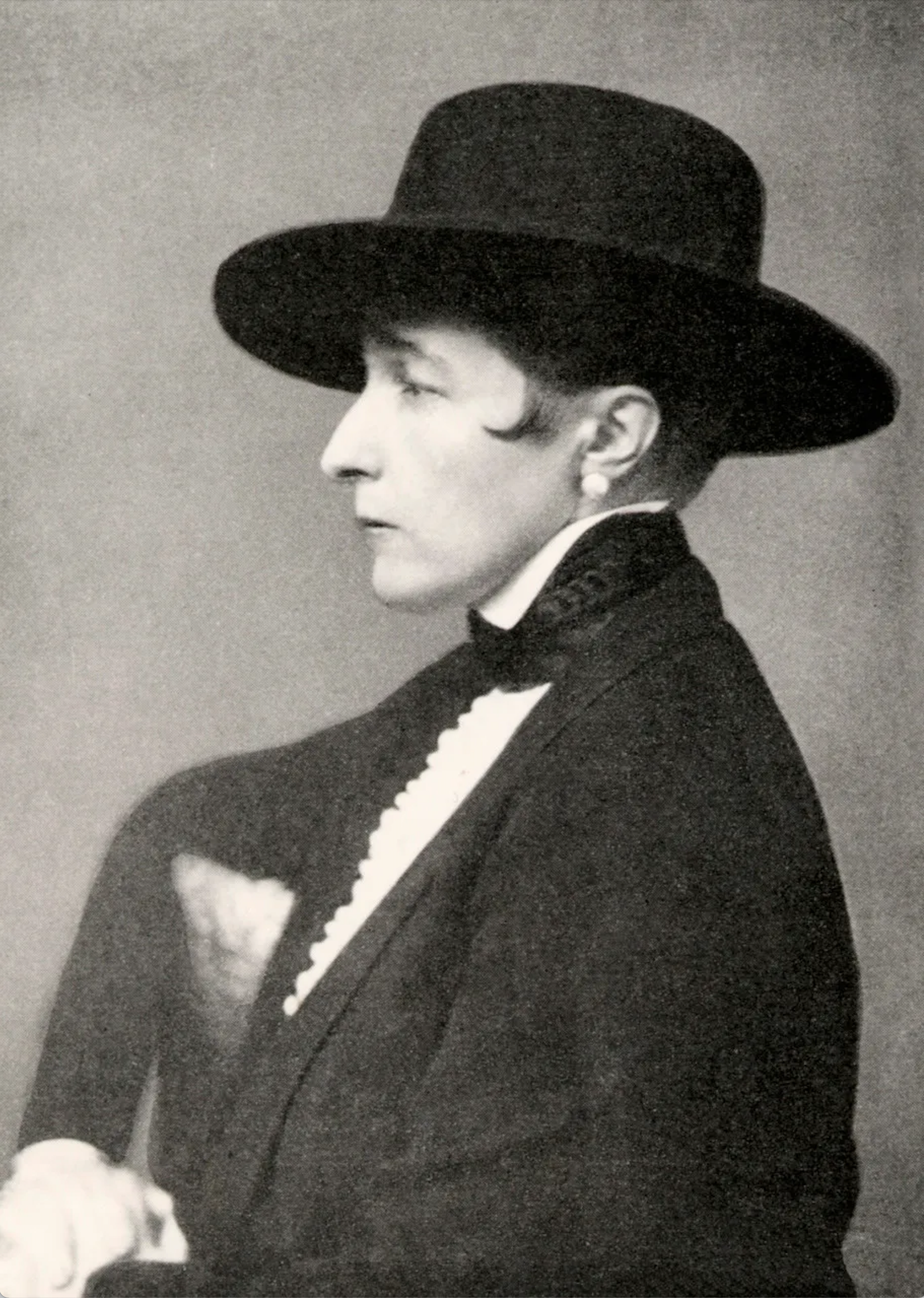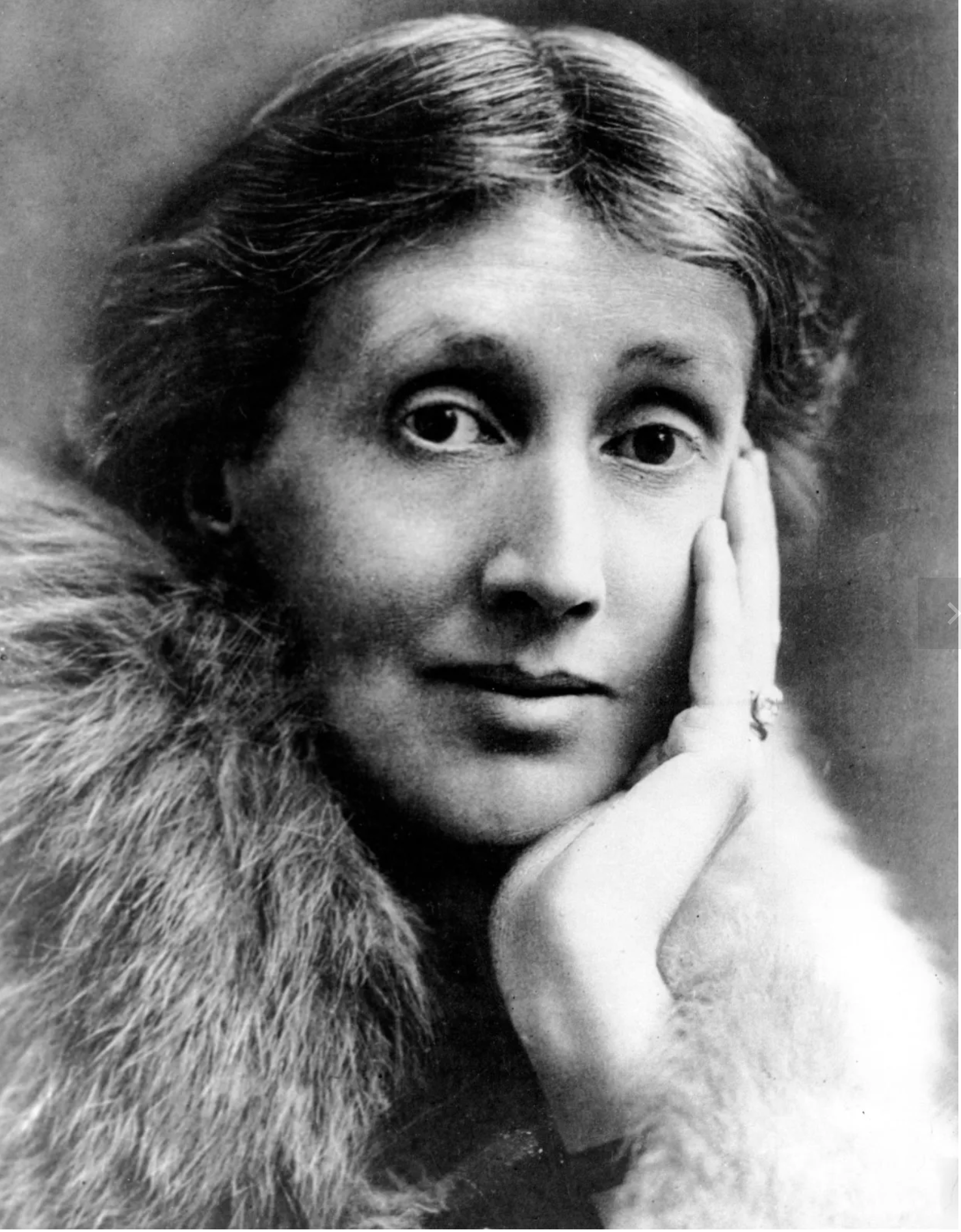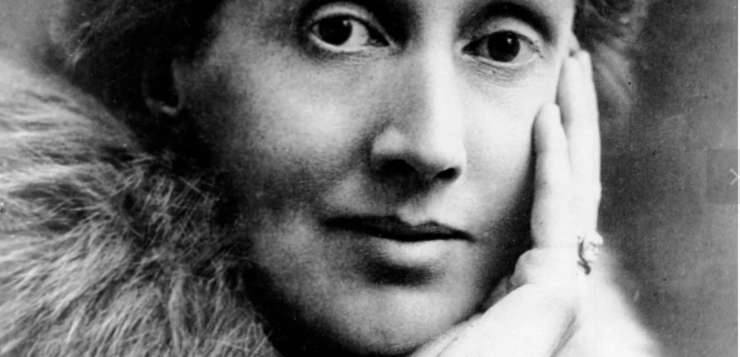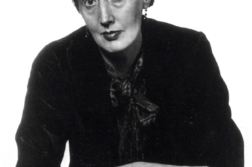ON AUGUST 15, 1921, the British House of Lords squirmed in discomfort as they debated the Criminal Law Amendment Act, which had recently passed the House of Commons. The Commons had modified the Act to include a clause making “gross acts of indecency” between women illegal, and “punishable in the same manner as any such act committed by male persons.”
In response to this amendment, House representatives set about the mind-twisting task of attempting to legislate lesbianism while refusing to speak its name. “My Lords,” began the Earl of Malmesbury, “I am extremely sorry to raise a discussion upon what must be, to all of us, a most disgusting and polluting subject.” Agreed the Earl of Desart: “I much regret that such a question has even been discussed. … I may perhaps draw cold comfort from the realization that there are not many people who read the debates of either House.” The Earl of Desart, former Director of Public Prosecutions, was particularly concerned that prosecuting lesbian sex would amount to its public advertisement by the Legislature: “The mere discussion of subjects of this sort tends, in the minds of unbalanced people to create the idea of an offence of which the enormous majority of them have never even heard.” Fearing the “noxious” spread of lesbianism through its public discussion, the Lord Chancellor confidently agreed that “in a sophisticated city … of every thousand women … 999 have never even heard a whisper of these practices.” And so, the amendment never became law.
Seven years later, 1928 would mark the publication of two revolutionary works of literature by queer women writers, and lesbianism would once again become the subject of intense dispute. Published within three months of one another, Radclyffe Hall’s The Well of Loneliness (July 1928) and Virginia Woolf’s Orlando (October 1928) both deeply challenged the gender conventions and sexual mores of their time, however disparate their approaches to these topics. While Woolf’s novel was celebrated as one of her greatest literary achievements, Hall’s novel was prosecuted for obscenity and subsequently banned by the British Crown.
§ According to a 1928 letter from the Director of Public Prosecutions, The Well of Loneliness represented “a plea not only for toleration but for the recognition of sexual perversion amongst women,” and would therefore “tend to corrupt the minds of young persons if it fell into their hands.” First printings of Hall’s novel are thus exceptionally rare, given that the magistrate ordered publisher Jonathan Cape Ltd. to destroy all remaining copies. On the other hand, Orlando was celebrated as “the longest and most charming love letter in literature,” and contemporary critics argued that Woolf’s novel, dedicated to her sometime lover Vita Sackville-West, “subverted censorship and revolutionized the politics of same-sex love.” Indeed, comparing the content and public reception of these novels can tell us a lot about which depictions of queer love were most threatening to British patriarchy in 1928. The Well of Loneliness was the first novel to portray love between women as natural, and to claim lesbians as virtuous (though persecuted) members of British society. In doing so, Hall’s work offended the delicate sensibilities of powerful British men. Her novel tells the fictional story of Stephen Gordon, “a girl born out of her physical sphere” who struggles with her desire not only for romantic relationships with women, but also to present and live as a man. Literary scholars have suggested that Stephen was inspired by Hall herself, who went by the name “John,” dressed in men’s clothes, and lived publicly with her partner, Una Troubridge. In fact, Hall often described herself as a “congenital invert,” a term she derived from physician Havelock Ellis’ concept of “sexual inversion,” which referred to those who “believed their gender role was opposite to their biological sex.” As such, some modern scholars suggest that Hall’s text is not a lesbian novel but a transgender novel. (Note that while some modern scholars refer to Radclyffe Hall using they/them pronouns, and perhaps the author would have done the same in a different era, Hall used feminine pronouns in self-reference, and I think we have to follow this practice rather than impose our standards.) The first edition of The Well of Loneliness contains an introductory “appreciation” by Havelock Ellis, who argues for the social and scientific significance of Hall’s work. Of course, written almost a century ago, The Well of Loneliness is far from a paragon of LGBT liberation, as witness Hall’s negative portrayal of gay men, feminism, and the “lower classes,” and by Ellis’ belief in eugenics. Nevertheless, Hall’s book garnered thousands of responses from others like her, who emphatically agreed with Stephen’s final plea in the novel’s closing lines: “Give us also the right to our existence.” While the novel initially received mixed reviews, moral panic surrounding The Well of Loneliness began with a scathing critique by Sunday Express editor James Douglas, who wrote that he “would rather give a healthy boy or a healthy girl a vial of prussic acid than this novel.” The magistrate and prosecutors at the trial, who were long-time acquaintances of Douglas, tended to use similarly hyperbolic rhetoric. When Hall and Jonathan Cape Ltd. tried to appeal the ban, Sir Robert Wallace, chairman of the court, declared the book “more subtle, demoralizing, corrosive, corruptive, than anything that was ever written.” In light of this reaction, it is perhaps surprising that The Well of Loneliness does not actually portray sexual relations between women, save for a single chaste kiss. The magistrate justified his decision by stating that Hall’s characters portrayed “horrible tendencies” for which they were never held responsible. According to author Marc E. Vargo, “the novel’s opponents … were not really perturbed because the book involved love between women. They were upset because its lesbians did not apologize for being gay, or, alternatively, did not come to a bad end. … [T]o the male-centric power structure of post-Victorian society, the prospect that some women might get along quite well without men was perceived as an affront.” During The Well of Loneliness’ obscenity trials, many authors came forward to testify on the novel’s behalf, including Virginia Woolf herself. While Woolf, the elite authoress, scathingly described Hall’s middlebrow novel as a “pale tepid vapid book which lay damp and slab all about the court,” she warned of the dangers of censorship in a letter co-written with E. M. Forster: “Novelists in England have now been forbidden to mention [lesbianism]. … Although forbidden as a main theme, may it be alluded to, or ascribed to subsidiary characters? … Writers produce literature, and they cannot produce great literature until they have free minds. The free mind has access to all knowledge and speculation of its age, and nothing cramps it like a taboo.” Woolf and her fellow writers were ultimately prevented from testifying at the trial by the magistrate Charles Biron, who ruled that authors were not experts on obscenity, only art, and that the identification and measurement of immorality must be left to the men of the British court (in spite of their distaste for discussing such “horror”). While it was published one month before Hall’s obscenity trial had begun, Woolf’s Orlando resulted in part from the author’s desire to subvert the “taboo” of lesbianism and, by extension, the irrationality of British censorship laws. § In Woolf’s novel, a young hero named Orlando, born as a male nobleman, mysteriously changes genders at the age of thirty and lives for the next 300 years as a woman, without aging. The character was based on aristocrat and fellow writer Vita Sackville-West, with whom Woolf had a famously passionate love affair. Throughout the story, Orlando dresses sometimes as a man, sometimes as a woman, and is possessed of similarly amorphous romantic inclinations. According to Leslie Kathleen Hankins, Orlando “plays an elaborate game of hide and seek with the reader and the censor,” rendering censorship both parodic and farcical. Woolf challenged social codes by demonstrating the constructed nature of gender, while building in a kind of plausible deniability through the device of Orlando’s fantastic sex change. For example, she mocks compulsory heterosexuality in this passage: “As all Orlando’s loves had been women, now, through the culpable laggardry of the human frame to adapt itself to convention, though she herself was a woman, it was still a woman she loved.” Given the gendered conventions of the period, is this a depiction of lesbianism, or not? In another passage, Woolf hints at the social, historical, and literary status of homosexuality as unspeakable when her narrator, Orlando’s “biographer,” comments that the subject’s life is touched with matters on which a biographer cannot “profitably enlarge,” though “it is plain enough to those who have done a reader’s part in making up from bare hints dropped here and there the whole boundary and circumference of a living person.” Perhaps ironically, Woolf was subjected to this same treatment by early critics of her work, who shied away from discussing the author’s bisexuality. In this same passage, Woolf seems also to toy with the idea of literature as infectious, reflecting the British patriarchal fear that allowing women to read about lesbianism would lead to its “polluting,” “noxious,” “poisonous,” and “corrosive” spread throughout the country. Orlando, the narrator writes, was “afflicted with a love of literature,” though “many people of his time escaped this infection … some were early infected by a germ … which was of so deadly a nature that it would shake the hand as it was raised to strike.” Woolf’s teasing subtlety stands in stark contrast to The Well of Loneliness, through which Hall explicitly intended to “encourage inverts to face up to a hostile world … with dignity and courage” and “bring normal men and women of good will to a fuller and more tolerant understanding of the inverted.” Notably, despite their treatment of similar subject matter, Hall and Woolf spurned each other’s work. According to Diana Souhami, Hall “distrusted innovation in literature and arts, and shunned what she saw as … modernist heresies.” While Woolf was a member of the famed Bloomsbury group, a group of modernist authors and artists holding liberal views toward gender and sexuality, Souhami writes that Hall was “right wing, a patriot, and a stalwart of the Catholic church” who “perceived authority and power as masculine.” Thus, the author reacted with horror and indignation when her book was condemned under the Obscene Publications Act of 1857 on November 16, 1928. Souhami further notes that Hall was “bewildered … to be branded obscene, corrupt, and depraved by the social class to which she felt allegiance.” And yet, class consciousness was undoubtedly a major factor in the widespread indignation and eventual condemnation of the book by male judges and legislators. As illustrated by the British Parliament’s attempt to legislate lesbianism in 1921, representatives sought to dismiss the discomfiting reality of sex between women as a “vice” that was practiced by “unfortunate specimens of humanity” who were “vile,” “unbalanced,” and “neurotic.” Such descriptors evoke the upper-class anxieties that were especially prevalent in Britain after World War I. This association is reinforced by the Lord Chancellor’s assertion that any “sophisticated society” would not harbor “this kind of vice.” Like the tuberculosis epidemic that was viewed as a disease “maintained by ignorance and folly” in London’s slums, lesbianism was similarly positioned as a lower-class infection that might “pollute” the minds of otherwise virtuous women. Hall’s work thus represented an explicit challenge to the forms of collective identification enacted by upper-class society, which conflated “disease” and “vice” as conditions of the uneducated and the unrefined. § Toward the end of The Well of Loneliness, the protagonist’s friend Jonathan Brockett discovers her relationship with Mary Llewellyn, and Stephen experiences “a queer sense of relief at the thought that he knew … because there was no longer any need to behave as if those relations were shameful.” Perhaps reflecting Hall’s relationship to her own sexuality, her novel has been criticized for representing homosexual life as shameful, tragic, and self-loathing, contrasting starkly with Woolf’s Orlando, which enacts a playfully queer romp through several historical ages. Nevertheless, when the publisher of The Well of Loneliness, Jonathan Cape, shifted printing to Paris, he found that “the fact that in Britain it could only be procured illicitly made it all the more enticing.” While Hall’s work certainly did not “pollute” women with lesbianism as suggested by the ignorant House of Lords debate in 1921, a book that was explicitly about love between women led to a widespread discussion of homosexuality among the public, thus paving the way for social reform. The sensationalist obscenity trial did more to publicize the text than Hall herself could have hoped, though unfortunately she was deeply hurt by the outcome and subsequently lost confidence as a writer. Alternatively, Woolf demonstrated that silence and censorship imposed upon homosexual themes need not be internalized purely as a source of shame but might also be mobilized as an enabling space for revolutionary experimentation, provocation, and the subversion of compulsory heterosexuality.

Meghan Tibbits-Lamirande, a doctoral candidate at Carleton University in Ottawa, Ontario, is researching radical social and political movements of the 20th century.







Discussion1 Comment
I just noticed the remarkable resemblance between the photo of Virginia Woolf and Oscar Wilde. Has this been commented on before, or is it just my imagination.